Does closing one vent change pressure ?
Ed(Edwina) and Stephen Ci
6 years ago
Featured Answer
Sort by:Oldest
Comments (24)
Ed(Edwina) and Stephen Ci
6 years agoRelated Discussions
Venting before pressure canning
Comments (3)While it has the added benefit of making sure the vent port is clean and clear, the primary reason it to make sure that all of the air is removed from the canner and that only steam remains. If air remains trapped in the canner then both the pressure and temp are affected (reduced) even tho it won't register as such on the gauge. It is a food safety oriented rule. ;) Dave...See MorePressure canning question on Venting
Comments (3)It can be difficult to see, and at that altitude assuming low humidity, even more difficult, depending on the available light and background colors. Something dark held up behind it helps. You can also hold a dry piece of paper over the vent to see if it get wet quickly. I have dark cabinets so looking from one direction it is obvious but from another with the windows and white stove behind it its invisible. In very low humidity you get more of a dry vapor. At my altitude of 900 feet and high humidity, once the lid lock pops up it's approximately another 6-8 min. before it begins venting well. That's on a 23 qt. so the 16 qt. shouldn't be much longer even at that altitude. Dave...See Morea/c pressures change, suction line warm
Comments (3)There is a possibility hot air from the attic or other area is being drawn into the Return Air. It could be entering at a point or area where you are not measuring that temperature increase. Do not Measure the Return Temp where it goes into the Return Air Grille, that will be before the hot air enters the Return. Check Return Air (RA) at grille & at entry of blower for heat gain, due to hot Return Air leaks. Where air-handlers' are set over Return Air Chambers check for air leaks through the sheet rock & down the wall studs from the attic - this is a fairly common condition that will overload the AC system! Compressor amp draw should be real high & condenser discharge air a very high delta t. Compressor will be laboring. Check the compressor discharge line temp too. I used to run in to this problem far too frequently. Linked page could be relevant: You have to read the entire linked page to understand, what happens too often, when a home is very hot & a geek is charging for a beer can cold suction line! - udarrell Here is a link that might be useful: AC System - Excessive Airflow - Excessive Charge...See MoreIs kitchen vent too close to bedroom window?
Comments (22)I don't know where the middle window was. Still not sure where the vent is either. The right side of the porch shows 5 windows on that wall. The middle window no longer exists. It's a wall with the range hood on the other side. Directly above it, about four feet from the exterior wall, and about two feet below the ridge, the vent exits the porch roof. (not far from where the triangle shows the roof pitch on the second drawing). But if the sheetrock is up and painted, your ship has sailed, because nobody is going to want to open up the sheetrock and repaint to fix something they don't think needs fixing. If there were a good fix, I'd do it on my dime. It would be worth it to me. The volume of air you exhaust and the relatively low odor of most foods I don't think is an issue. If this wasn't pre-planned to specifically go somewhere (and it appears that it wasn't), I think this is about the best / least intrusive solution This is my first build and probably my last. But, if I ever build again, it will be with the HVAC contractor working with the architect during the design phase. Why this isn't standard I don't know. The architect designed this house with no regard to HVAC at all! Live and learn. It was tricky from the start to vent the hood and I'm not faulting the HVAC contractor. He did his best but I do wish I had been part of the decision. I'm going to leave it where it is. The windows should be tight enough to keep the smell out when closed and they won't be open often. Thanks again. You have all been very helpful....See MoreAustin Air Companie
6 years agolast modified: 6 years agoEd(Edwina) and Stephen Ci thanked Austin Air CompanieEd(Edwina) and Stephen Ci
6 years agoAustin Air Companie
6 years agolast modified: 6 years agomike_home
6 years agoAustin Air Companie
6 years agomike_home
6 years agoVith
6 years agolast modified: 6 years agoAustin Air Companie
6 years agolast modified: 6 years agoVith
6 years agolast modified: 6 years agoElmer J Fudd
6 years agolast modified: 6 years agoEd(Edwina) and Stephen Ci
6 years agoAustin Air Companie
6 years ago
Related Stories
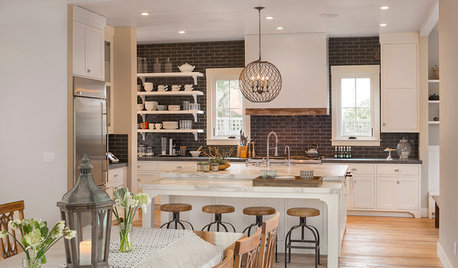
TRANSITIONAL HOMESHouzz Tour: Change of Heart Prompts Change of House
They were set for a New England look, but a weekend in the California wine country changed everything
Full Story
INSIDE HOUZZHow Much Does a Remodel Cost, and How Long Does It Take?
The 2016 Houzz & Home survey asked 120,000 Houzzers about their renovation projects. Here’s what they said
Full Story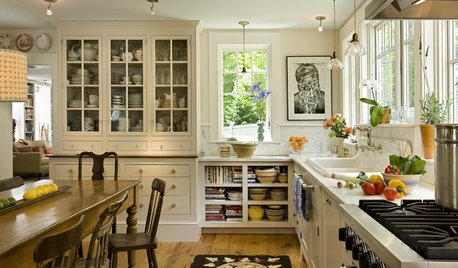
KITCHEN DESIGN12 Great Kitchen Styles — Which One’s for You?
Sometimes you can be surprised by the kitchen style that really calls to you. The proof is in the pictures
Full Story
DECLUTTERINGHow to Go Through a Deceased Loved One’s Belongings
A professional organizer offers sensitive and practical advice on sorting through a loved one’s things
Full Story
FEATURESOscar Time: Does Your House Have Star Quality?
Private homes are a hot commodity in the movie industry. See how one landed a role in ‘La La Land’
Full Story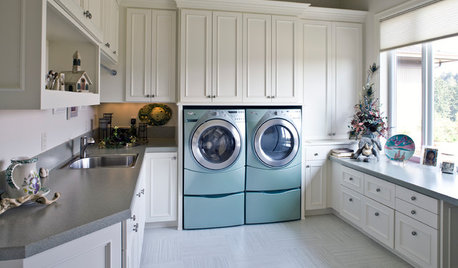
LAUNDRY ROOMSOne of the Biggest Building-Code Offenders in the Laundry Room
A dryer vent specialist shares what to do — and what to avoid — to keep things safe and efficient
Full Story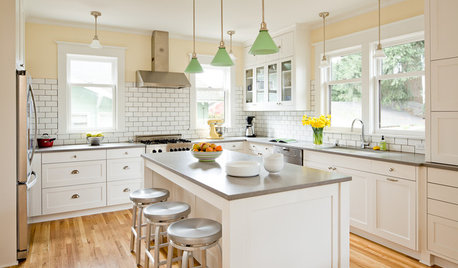
MOVINGThe All-in-One-Place Guide to Selling Your Home and Moving
Stay organized with this advice on what to do when you change homes
Full Story
WEDDINGSHow One Couple Got a Perfectly Intimate Backyard Wedding
Vintage pieces, natural materials and close family and friends are an ideal combination for a Pittsburgh couple
Full Story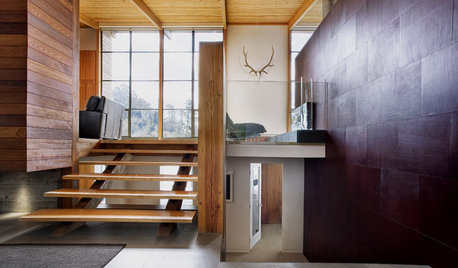
Level Changes: Defining Spaces
Change a Mood and Differentiate Living Areas With a Few Steps Up or Down
Full Story
HOME TECHHow Smart TV Will Change Your Living Room
Get ready for the future of TV, in which your living room becomes a movie set, a communication hub and a gaming zone
Full Story



sktn77a